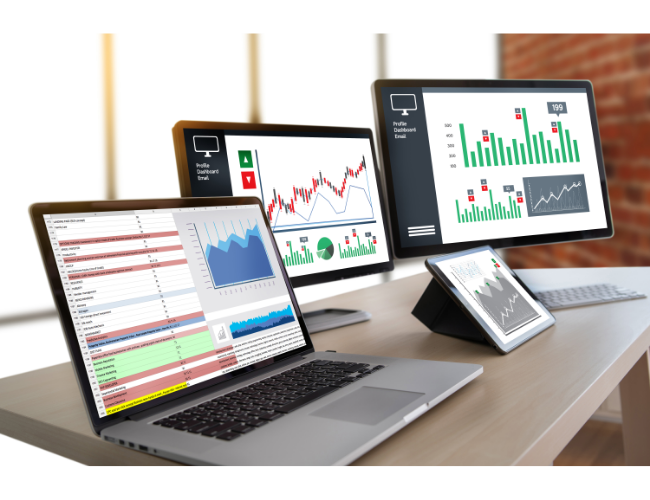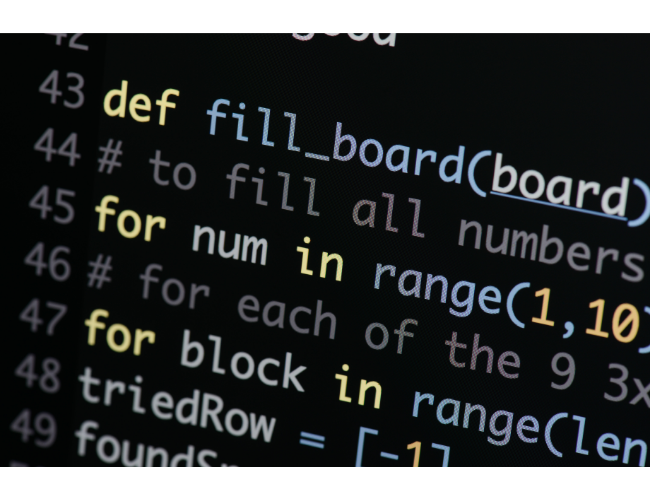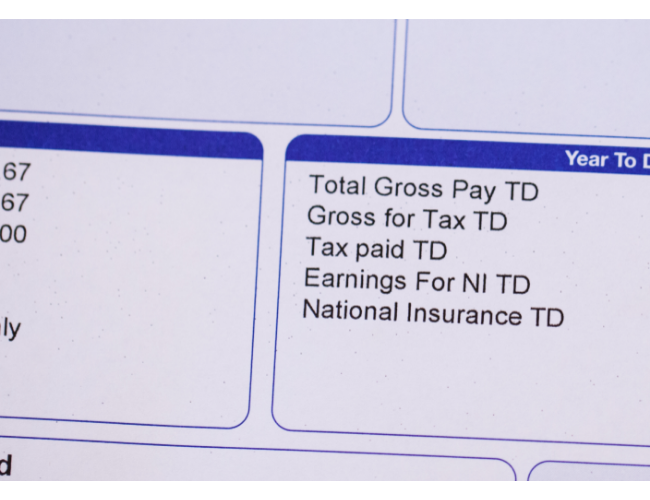What Bachelors Degree Do I Need To Be A Data Analyst?

Data analyst positions are positioned to grow at the rate of 25% by 2029. Data is all around us and data analysts help companies analyze their data for making better business decisions.
A bachelors degree specifically in data analytics is available in a few select colleges. Additionally, there are bachelors degree holders in computer science, mathematics, statistics, information systems or finance who become data analysts with additional experience, training or certification.
Not all degree programs in data analytics are as affordable but there are a couple of degree programs which are both high quality and reasonably priced.
Bachelors Degree For Data Analytics
The main skill required for data analysis is in how the professional is able to organize and look at the data to make logical predictions about the future trends. Some level of programming and data management also comes in handy, along with a mathematical and statistical background.
Therefore, employers are comfortable with bachelors degree undergraduates in either data analytics or one of the relatable data management, or mathematical degrees such as in computer science, mathematics, statistics, information technology or finance.
Since a bachelors degree in data analytics is the most ideal for this position, here are a couple of my recommended degree programs in data analytics that are fully online, affordable, high quality and faster to complete:
1) Southern New Hampshire University (SNHU)

This Data Analytics degree program is completely online and has many beneficial features as follows:
- The degree consists of analyzing real-world problems, mastery of professional analytical tools and ways to present the findings from the data analysis.
- The admission requirements only require a 2.75 or above GPA in your high school transcript or equivalent. Other factors may be considered for admission, but overall the admission policy at SNHU is quite simple and easy.
- This 120 credit program allows about 90 credits to be transferred in from external ACE/ NCCRS recommended courses, testing out with AP/ CLEP/ DSST exams and more. This makes it possible to earn many of the general ed and some of the major-specific credits more quickly and inexpensively.
- The credits from exams or external courses can be earned while the student is actively enrolled at SNHU. These will still be eligible for the credits transfer.
- There is a mandatory 30 credits that need to be earned at SNHU which can be used to cover languages and tools such as R, Python, Tableau etc, with a focus on data manipulation, scripting, visualization and statistical analysis.
- The online tuition fee is substantially low at $320/credit which is the same irrespective of the state or location.
2) Western Governors University (WGU)

This is an online degree in Data Analytics and Data Management with the following features:
- It provides a solid background in database management, data manipulation, analysis and visualization.
- As part of the admission requirement for this WGU degree, the student needs to:
-
-
- Have some previous upper-level IT coursework
- At least 2 years of experience in IT
- Already have an associate or bachelors degree
-
- Of the 120 or so credits (38 courses), about 27 or more credits can be transferred from any previous college courses or other exams such as CLEP, AP or DSST. At the time of the student’s initial enrollment, the previous transcripts have to be submitted for an initial evaluation. After this, the transfer report will be generated so that student can work with the student mentor for a degree plan for the rest of the course credits.
- It will not be possible for the student to transfer external credits after initial acceptance or midway during the program.
- As part of the degree program fee, the student gets to complete a WGU Data Analyst Udacity Nano degree and many other industry certifications such as CompTIA A+ and CompTIA Network+ are included within the same degree fee and curriculum.
- The student pays at fixed fee of $3,625 for every 6 months for unlimited courses, and student typically complete the bachelors degree in about 35 months or almost 3 years. So if the student completes many more courses during the 6 month term, s/he can reduce both the cost and time toward degree completion.
So if you are looking to get a very low tuition education with many transfer credits and a good foundation in data analytical tools and languages, the SNHU degree will be a good fit for you.
The SNHU degree is likely to be ideal if you already have work experience in IT and are simply looking for a degree and specific skills in data analytics.
Or if you are looking for a lower tuition with some credits transfer, with a heavy focus on the technical aspects of data management, many IT-specific courses and certifications, along with learning analytical tools and scripting languages, WGU will be the right fit for you.
The WGU degree is great if you only have an associate degree or if you have limited experience in IT.
Of course, the overall cost and total time to degree completion are also factors to look into. Both time and cost will be much reduced with the SNHU program, though WGU too will only take about 3 years for the bachelors degree completion.
What are top 3 skills for data analyst?

Data analysts need to have the following 3 skills:
1) Technical expertise in data manipulation and analysis.
2) Mathematical and statistical knowledge to make inferences from the data.
3) Communication and visualization skills to share and discuss their findings about the data with managers and other senior staff at their company.
Do data analysts need to be good at math?
Data analysts are certainly required to have some mathematical and statistical skills with an understanding of formulas and mathematical inference. Though it is possible to operationally function as a data analyst without a thorough knowledge of math, it can become a real challenge in complex big data projects if the analyst is not sufficiently qualified in mathematics.
Does data analytics require coding?

A data analyst need not be an expert in coding but s/he still needs to be skilled in scripting and data manipulation using Python, R and other related big data scripting languages.
Since there are constantly new advancements and newer language versions, the data analyst must be able to keep learning the newer versions of various tools and scripting languages.
Also, rather than the regular application coding logic, the data analyst needs to know how to group and summarize data using these scripting languages.
The speed and performance of the scripts is also extremely important since data analysts typically work with many terabytes of data on a regular basis.
How do I become a data analyst with no experience?
The SNHU degree has very few admission restrictions and you can certainly proceed with SNHU’s Data Analyst online bachelors degree. This will certainly help jump start your data analyst career and you will have the core skills to be successful in this occupation.
There is also the added advantage of a liberal credits transfer, many low cost ways of earning general ed and other lower level credits (CLEP/AP/DSST), along with a quality curriculum in data analysis and related technologies.
What is a data analyst’s salary?
As per the Bureau of Labor statistics, the average salary for data analysts is about $120,000 and for more senior positions this can be a lot higher. The pay is also adjusted somewhat based on the cost of living in different US states and metropolitan areas.

Can you be a data analyst without a degree?
No, data analysis and big data manipulation is a highly specialized skill that combined technical handling of the data with gathering mathematical and statistical insight from the data. This is a unique combination of skills which only a select few are able to excel in.
In fact, it is not uncommon for someone to have a masters degree in this field after a few initial years of experience in this occupation. So most definitely, a bachelors degree is the minimum required qualification for a data analyst.
But if you have atleast an associate degree in a different field, you could still enter the field with a data analyst certification such as Google Data Analyst certificate from Coursera. Having successfully completed the certificate program will prove to employers that you have the necessary skills for the position.
There is also a Data Analytics graduate certificate that any bachelors degree graduates are eligible for at Excelsior college. By completing this certificate, students are eligible to transfer 9 credits to the 30-credit MS is Organizational Leadership with Emphasis in Technology and Data Analytics.
Since these skills are very much in demand, for someone with the right skills, there are likely to be some exceptions of people entering the field without a bachelors degree.
What are the prerequisites to become a data analyst?
A bachelors degree in IT, computer science, mathematics, statistics or data analytics are among the required prerequisites for a data analyst.
Data analytics is a complex task that combines many different skills and employers typically expect their data analysts to have a few years of IT, finance, computer technology or other related work experience.
But it is certainly possible to become an entry-level data analyst with at least a bachelors degree in data analytics.
Is data analysis hard?
For someone who is reasonably comfortable with computer technology and mathematics/ data management, data analysis is for sure a fun occupation to be in.

But for anyone without the formal technical or mathematical background, if the person is really interested in the field, there are certifications such as the Google Data Analytics certificate on Coursera that can make it a whole lot easier to get comfortable with data analysis.
Moreover, a certificate such as this from Google can allow a novice to enter this exciting field, or a experienced professional to further boost their career in data analytics.
But for someone without the technical or mathematical skills required who is not motivated to work hard to acquire these skills, data analysis can indeed appear hard.
How much does an entry-level data analyst make?
Looking at the salaries for entry-level data analysts in Indeed.com and the median pay of about $98,230/yr for data scientists on BLS, $60,000/yr is an entry-level pay for someone with about 1 or 2 years in this occupation who just graduated college a couple or more years ago.
What can I do with a bachelors in data analytics?
With a bachelors in data analytics, you will be doing Python, R or other scripting to organize and manipulate large amounts of your company’s data, then applying mathematical or statistical models on the results to arrive at inferences to guide your company’s business in many different areas.
